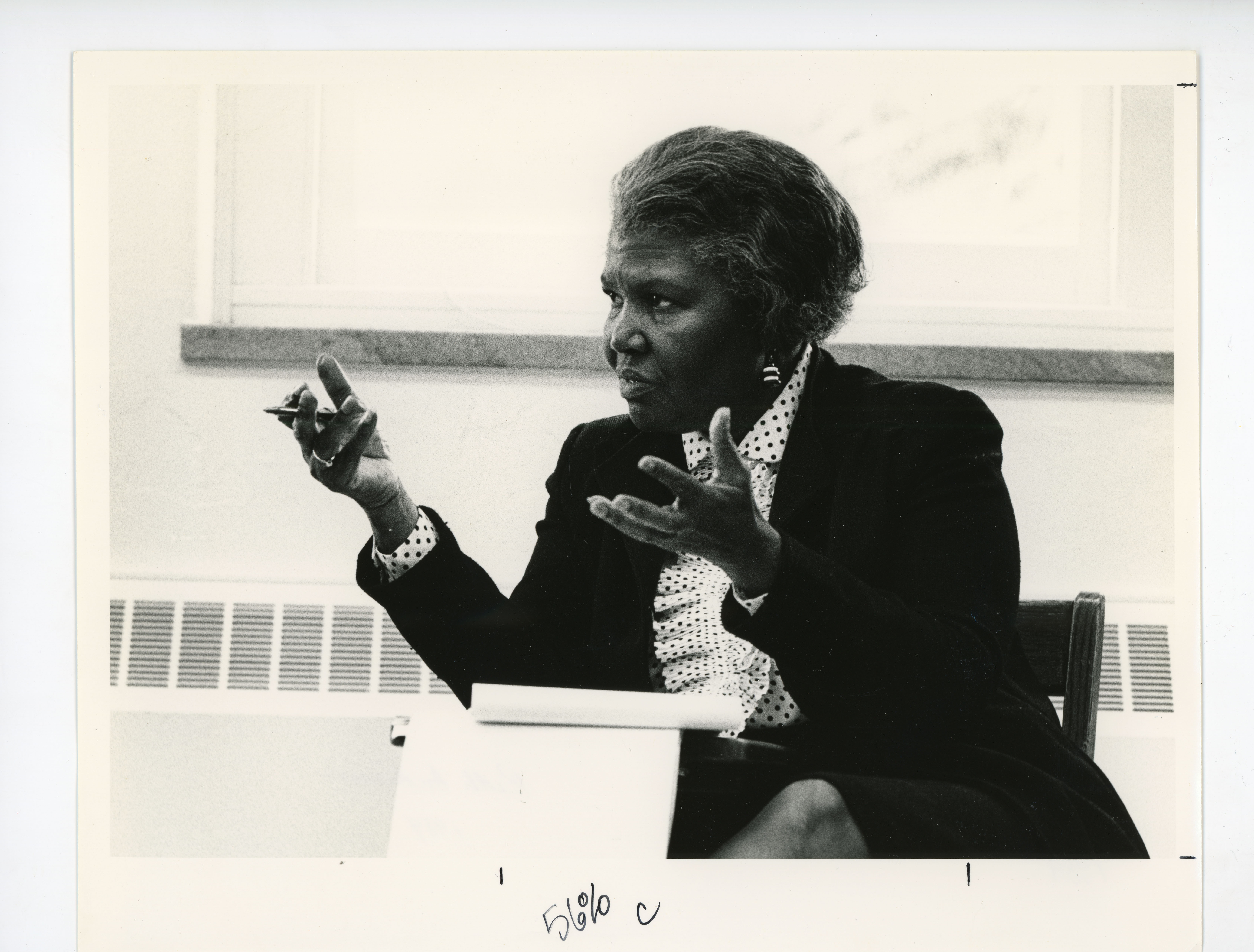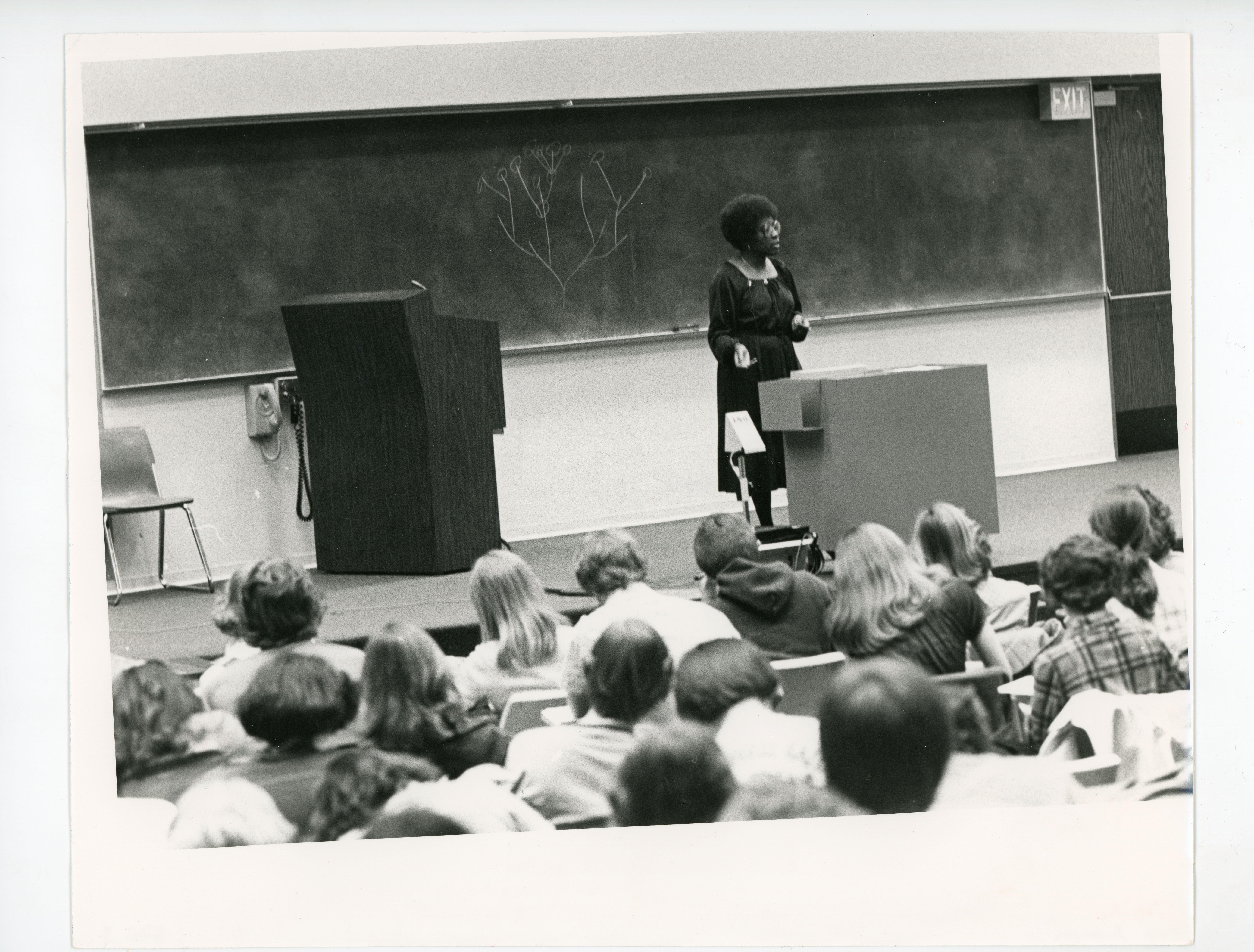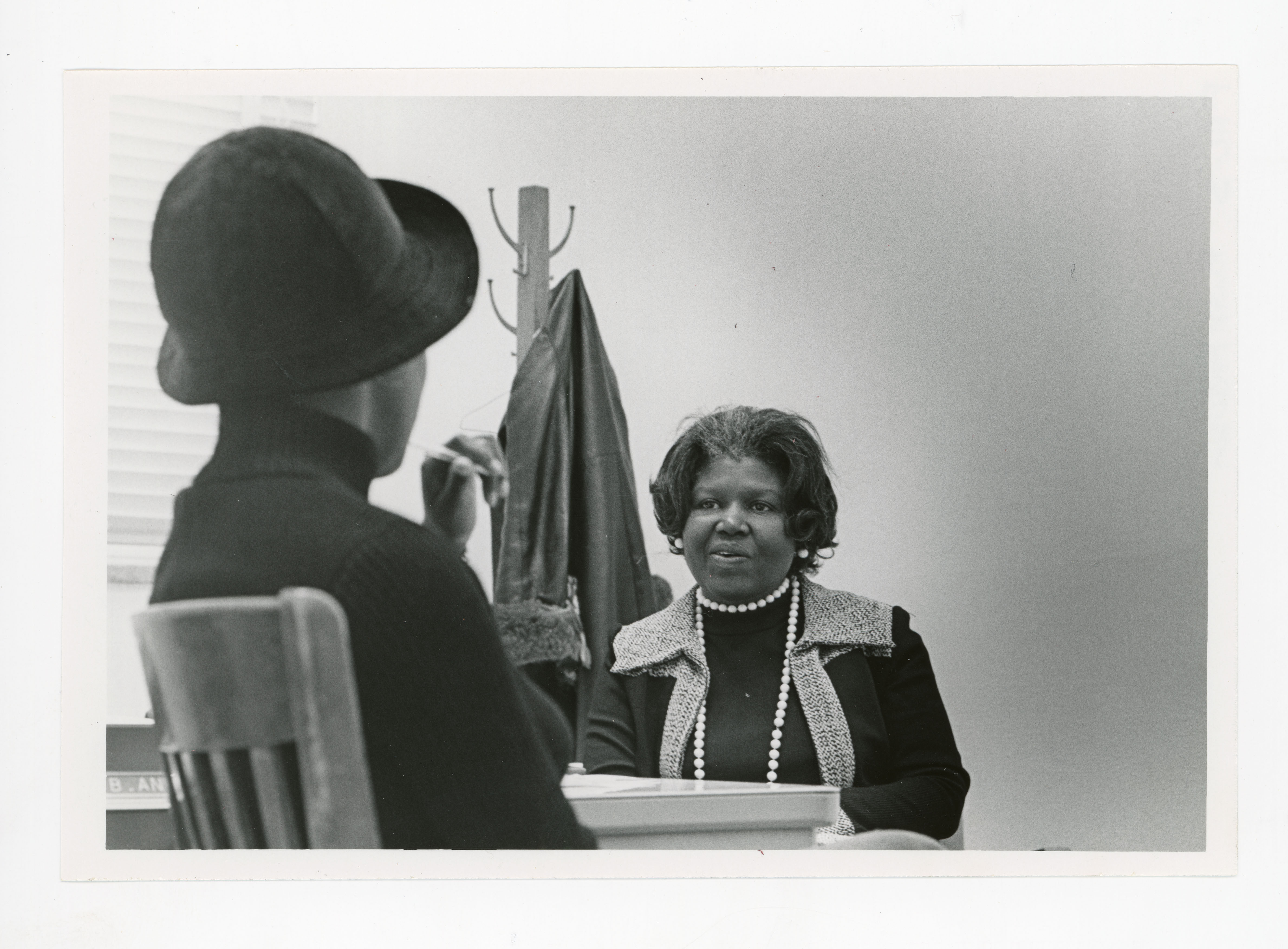History
Department of Social Work
Starting in 1969, UNI began offering undergraduate courses in social work within the Department of Sociology and Anthropology, with a full undergraduate program added in 1971. As the demand for the undergraduate program grew and the need for professional social workers was increasingly recognized in the region, the undergraduate social work major, expanded and achieved accreditation through the Council on Social Work Education (CSWE) in 1975. In 1975, the department’s name was changed to the Department of Sociology, Anthropology and Social Work. With the expansion of its faculty and the elaboration of its curriculum, the Department of Social Work was established as a standalone department in 1982.
The department’s offerings have continued to evolve to meet the ever-changing needs of both our students and the profession. We currently offer both baccalaureate (undergraduate) and graduate social work programs with long-term goals for future growth and development.
BSW Program History
Starting in 1969, UNI began offering undergraduate courses in social work within the Department of Sociology and Anthropology. Professor Ruth Bluford Anderson, an African American social worker, founded the undergraduate social work program, initially teaching all three social work courses offered at the time, as well as single handedly building a social work library, establishing field placement connections with local agencies, designing and building the social work curriculum, and obtaining accreditation approval from the Council on Social Work Education in 1975. The department began offering a social welfare minor in 2014.
Undergraduate certificate programs have regularly been offered in addition to the undergraduate social work degree to provide students with advanced knowledge and skills in specific areas of social work. The department began offering the substance abuse counseling certificate in 1986 (renamed the addictions treatment certificate in 2022), the conflict resolution certificate in 1994 (transferred to the Department of Communication and Media in 2022) and the child welfare certificate in 2014. Additionally, many social work courses are options for completing other multidisciplinary certificates across campus, ensuring that a diverse set of disciplinary perspectives is often present within social work courses.
For much of the department’s history, the conferred undergraduate degree was titled a Bachelor of Arts degree with a social work certificate. This degree name was frequently confusing to students based on the offering of certificate programs across campus. In the fall of 2021, the undergraduate degree name was formally changed to a Bachelor of Social Work (BSW).
MSW Program History
The need for a Master of Social Work had been envisioned for decades when it was eventually realized in 1995 amid university administrator support. Support from community agencies, intensive lobbying efforts, and statewide support from many of our undergraduate social work alumni was integral to securing funding support from the Board of Regents. The curriculum offered two concentration options: advanced micro practice and social administrative practice.
The first cohort of 28 students graduated from UNI’s MSW program in the Spring of 2002. Council on Social Work Education (CSWE) accreditation was obtained in 2002.
In 2013, the MSW program was reimagined. The concentrations in advanced micro practice and social administration were discontinued and the entire MSW program was modified to create the trauma-informed practice specialization. The trauma-informed care focus provides an overarching framework that incorporates trauma awareness and guides general practice with individuals, families, groups and communities who have been impacted by trauma. The trauma-informed care system must promote healing environments and prevent re-traumatization by embracing key trauma-informed principles of safety, trust, collaboration, choice and empowerment. UNI’s MSW program was the first program to focus on trauma-informed care within the region and remains one of the few.
In spring 2016, the MSW program added a fully online program option. The online program was designed to fit the needs of working professionals (both already in the field and those not), providing evening classes on a part-time basis.
Departmental Founder: Professor Ruth Bluford Anderson

(Oct. 28, 1921 - Jan. 22, 2013)
Professor Anderson founded the social work program at the University of Northern Iowa in 1969. She initially taught all three social work courses offered at the time, as well as singlehandedly built a social work library, established field placement connections with local agencies, designed and built the social work curriculum, and obtained program accreditation approval from the Council on Social Work Education. Professor Anderson served as acting department head of the Department of Social Work for two years prior to her department. She was the first African-American department head across UNI’s campus (White, 1988) and continued to teach until her retirement in 1990, a legacy of 22 years of service within the department. She retired with the status of Professor Emeritus in recognition of her contributions.

As a social worker, Professor Anderson worked in and studied public welfare and addiction. She was heavily involved in local and state social services and civil rights work. Professionally, she was one of the first to focus on the problems faced by women struggling with alcohol and their unique treatment needs. In 1985, Professor Anderson published her autobiography, “From Mother’s Aid Child to University Professor: An Autobiography of an American Black Woman.”
As a professor at the University of Northern Iowa, Professor Anderson was originally passed over for promotion to the rank of full professor. She sued and later won her legal battle with the university, being awarded the rank of full professorship with tenure. Her legal settlement was seen as a major victory for female professors at public universities in Iowa.

Professor Anderson was extremely active within the community, including within the local chapters for the NAACP and the Sickle Cell Foundation. After retiring from UNI, she served on the Black Hawk County Board of Supervisors, becoming the first African-American woman to be elected to a county Board of Supervisors across the state. She was inducted into the Iowa Women’s Hall of Fame in 1982 and the Iowa African American Hall of Fame in 1996. Professor Anderson was named Social Worker of the Year by the Iowa Chapter of the National Association of Social Workers in 1992, and received a Lifetime Achievement award from the National Association of Social Workers in 2012.
An interview with Professor Anderson by African-American Voices of the Cedar Valley is available to view on the African-American Voices website.
In recognition of Professor Anderson’s contributions to our students, our department and our profession, we are happy to offer the Ruth Bluford Anderson Social Work Scholarship for an undergraduate social work major. This scholarship is made possible by privately donated funds from UNI current and past social work faculty, local social work practitioners and local African-American community leaders.
Photos courtesy of University Archives, Rod Library, University of Northern Iowa
History of the Land
Historically, the land the University of Northern Iowa sits on was under the ancestral stewardship of native and indigenous tribes, including the Báxoǰe or Bah Kho-Je (Iowa), the oθaakiiwaki-hina-ki (Sauk) and the Meškwahki-aša-hina (Fox), the Očhéthi Šakówiŋ (Sioux), the Umónhon (Omaha), and the Hocąk (Ho-Chunk), as well as those tribal nations who are contemporary caretakers of land in Iowa, including the Meskwaki: Sac and Fox Tribe of the Mississippi in Iowa.
As an academic department whose programs hold a professional value of “social justice,” the Department of Social Work acknowledges the sovereignty of those tribal nations and the violent and painful histories of removal and dispossession as the original caretakers of this land. Social workers have a professional ethical obligation under the National Association of Social Workers Code of Ethics to “take action against oppression, racism, discrimination, and inequities, and acknowledge personal privilege,” (1.05 Cultural Competence), which includes recognizing the historical events and the on-going legacy of those events that has brought us to reside on this land and to engage in the academic pursuits of this institution. Recognition is only the first step in our ethical obligations as social workers to address the effect of such ongoing legacies; without action, we remain complicit in this and other historical legacies.
History of UNI
What was to become the University of Northern Iowa developed on this site from a Civil War orphans’ home. In 1876, the State of Iowa General Assembly passed an act renaming the institution as the Iowa State Normal School for training teachers to serve in the State’s common schools. The institution evolved to the Iowa State Teachers College in 1909, which established a reputation as a leader in teacher education. In 1961, it became the State College of Iowa, and, in 1967, the name was changed to the University of Northern Iowa.
Today, UNI offers 100+ undergraduate majors across four colleges (College of Business, College of Education, College of Humanities, Arts & Sciences, and College of Social & Behavioral Sciences) plus the Graduate College. The Department of Social Work is one of ten departments within the College of Social and Behavioral Sciences (CSBS) at UNI. In 2023, the Department of Social Work joined the newly formed School of Health & Human Sciences within CSBS. UNI’s Graduate College offers over 50 Master's and Doctoral programs across campus.
